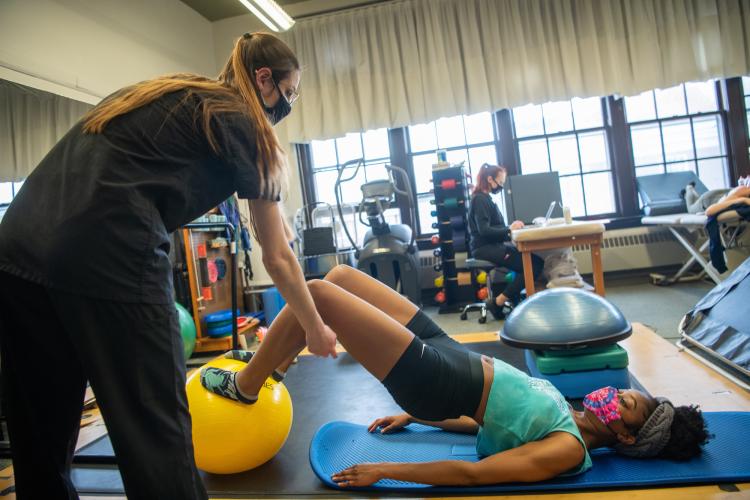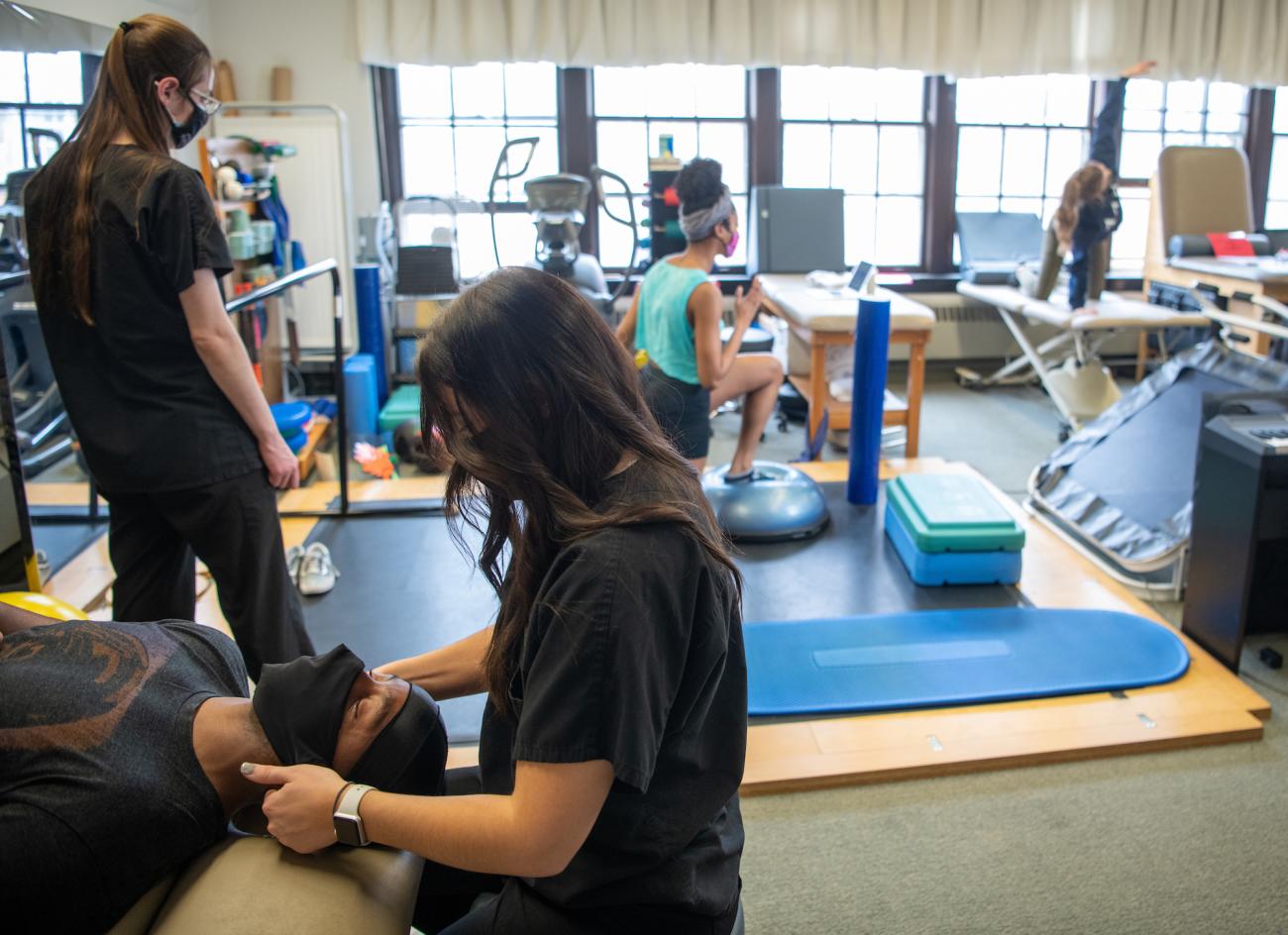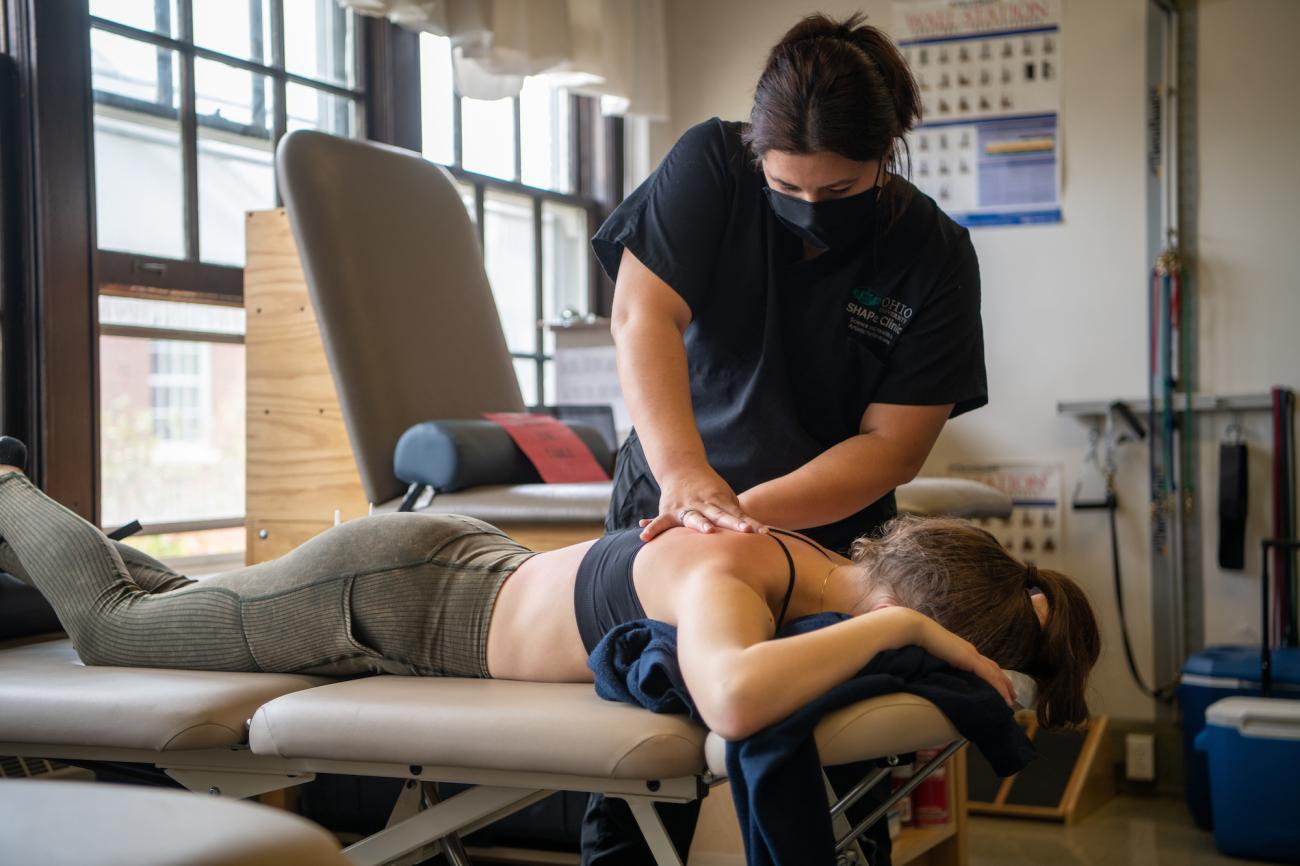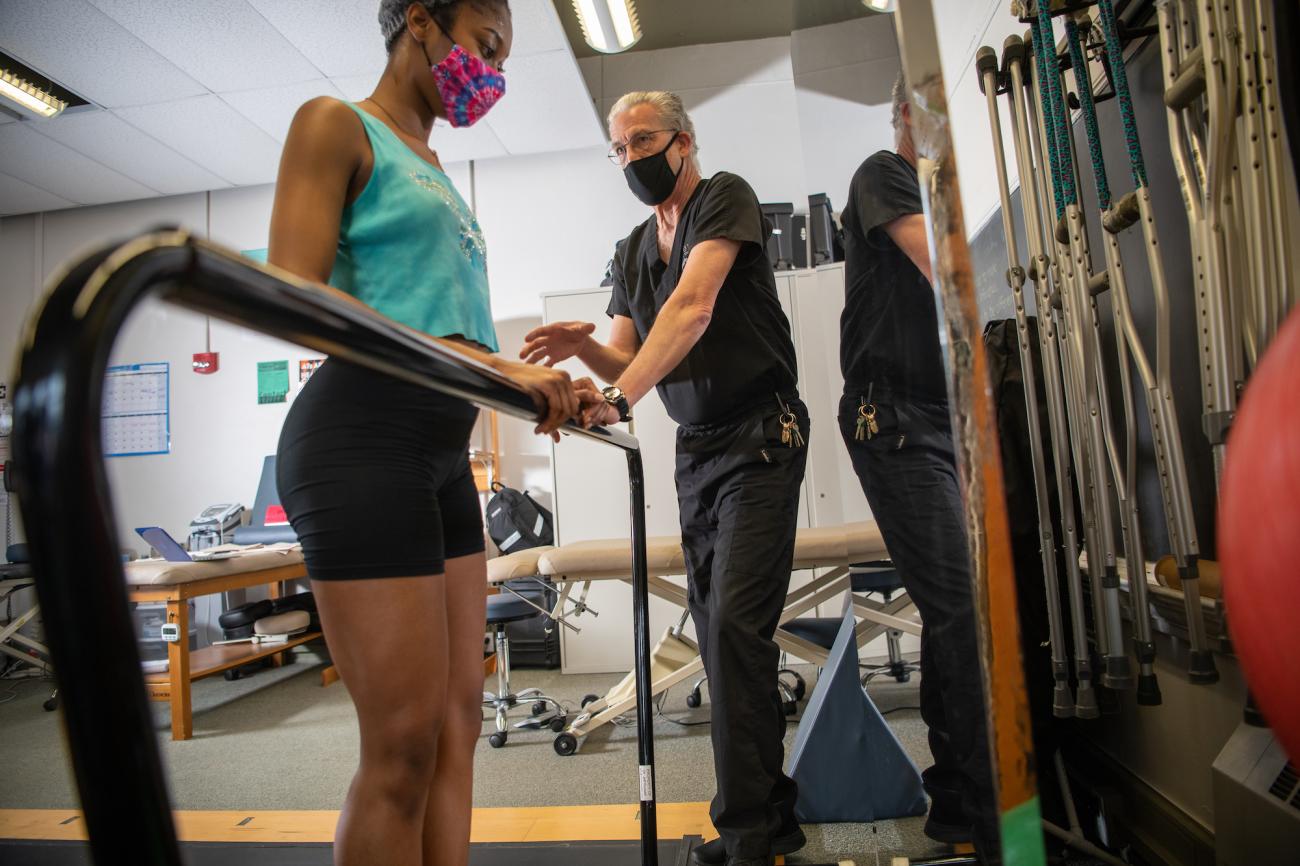
OHIO efforts to provide care for performing arts students amid pandemic highlighted in national publication

Although in-person performing arts events have decreased during the pandemic, a need still exists for adequate healthcare treatment for performing artists with virtual and limited in-person activities. Ohio University’s Clinic for Science and Health in Artistic Performance (SHAPe Clinic) has been providing that care for OHIO students, recently being nationally recognized for its efforts.
SHAPe Clinic Director and Associate Professor of Athletic Training Dr. Jeff Russell, College of Fine Arts Dean Matthew Shaftel and athletic training graduate students and clinicians Ariana Senn, Rebecca Marszalek and Emily Eckman, were featured in NATA News, the newsmagazine of the National Athletic Trainers’ Association (NATA).
“I was just incredibly proud and excited that the NATA wanted to do that. I’ve been in the NATA since 1980. I know these people, and they know me, and for them to want to lift [the clinic] up was amazing to me,” said Russell, who is also a member of the NATA Council on Practice Advancement’s Performing Arts Committee.
“It was a lot of fun to be able to share what we do here in our little clinic in Athens, Ohio, with a national publication. Performing arts athletic training is still a relatively young field within athletic training,” said Senn, a second-year graduate student from Clover, S.C. “Any chance we have to share what it means to do what we do helps bring awareness to our work within the bigger world of athletic training.”
The SHAPe Clinic is a partnership between OHIO’s College of Fine Arts and College of Health Sciences and Professions. Licensed and certified athletic trainers provide care to performing arts students, including dance, music, theater, film and the Ohio University Marching 110. All care is offered without charge to the students.

“The College of Health Sciences and Professions has a growing interest in supporting not only individuals who are injured, but those who are also striving to reach peak performance in their chosen athletic endeavors,” said Dr. John McCarthy, the college’s interim dean. “The SHAPe Clinic is uniquely positioned to aid athletes while also providing vital support to a typically underserved population of athletes – performing artists. This partnership allows OHIO to serve as a national model for supporting student artists and helping them realize long and healthy careers.”
The SHAPe team is grateful for the collaboration and support from the College of Fine Arts, including from Shaftel.
“The SHAPe Clinic not only supports the physical needs of our performance students but also brings attention to the importance of access to this type of expert care and oversight in the field. This demonstrates the forward-thinking foundation our students receive and carry with them as they establish the standards for professional performers, actors and dancers in the near future,” Shaftel said. “We are proud to partner with Dr. Russell and his clinic staff in setting expectations that matter not just here but in the larger performing arts world as well.”
Eckman, a first-year graduate student from Akron, Ohio, Marszalek, a first-year graduate student from Dartmouth, Mass., and Senn are all passionate about providing care for performing artists and working in the clinic. All three come from a background in the performing arts and have seen medical concerns arise.
“We all have seen firsthand the lack of healthcare that was available to us, and what different injuries and issues we saw our friends and teammates go through. That’s what really inspired me to go into this field because I wanted to make a difference and be that change, and help those people that aren’t getting the advocacy they deserve,” Eckman said.

Before the pandemic, students could walk into the clinic for care. The athletic trainers would also provide on-site care at various events, including dance concerts, theater shows and the Marching 110 practices and game performances. Once COVID-19 hit, adjustments were made to accommodate required protocols while still providing excellent healthcare.
One change in the clinic’s work included helping the Marching 110 with COVID protocols. The athletic trainers checked approximately 130 to 140 students every day to make sure they were healthy and practice would be safe for participants. The clinic also shifted to an appointment-only format, keeping patients spaced out to meet health and safety guidelines. Eckman, Marszalek and Senn continue to provide specialized care for the limited in-person activities and remain on-call in case they are needed for practices or events.
“Our patients have been amazing throughout this. I can’t imagine how fast everything would be shut down if they were acting irresponsibly. But they come in every day, they follow our procedures, they never complain about the masks, taking their temperatures, being limited in the clinic. They’ve been amazing,” Eckman said.
Although sports receive significantly more healthcare, the students and Russell are determined to advocate and work towards bringing awareness to the field of performing arts athletic training and the need that exists for it.
“Performing artists are still active individuals; they are artistic athletes. They are not doing the same tasks or sport demands, but they still have many physical demands placed on their body,” Marszalek said. “They are very hardworking, they put in many hours, and they get injured. We know this from what we see in the literature and from our experience. They are worthy and deserving of care.”
Russell and the students note that the SHAPe Clinic is a great way for the message of performing arts healthcare to be spread.
“When we demonstrate to the artists they deserve to be cared for, they take better care of themselves because they then recognize that it is not normal to be in pain and to have to push through these really uncomfortable and painful ailments to perform. They deserve the chance to take care of their bodies well and to be educated on how to do that,” Senn said. “So hopefully, once they leave Ohio University, they have a new perspective on what it means to be an artist and what it means to take care of your body, and your social, physical and mental wellbeing, as an artist.”

The SHAPe Clinic also conducts community-engaged research, working with members of performing arts communities to help understand and grow the research literature in the field of performing arts healthcare, while also helping give back resources to the community the research is part of. Recently, Russell published the first article to look at concussion risk in stunt performers.
“We are actively working with community members in artistic communities as co-investigators. We created this as a collaboration, and we can’t do what we do without their involvement,” Russell said. “The same is true in the clinical environment. We can’t do what we do without building partnerships with the patients. Everything we do is built around weaving together health sciences and art.”
Eckman, Marszalek and Senn hope to continue to work in the field of performing arts athletic training after graduating from OHIO, and possibly continue their research efforts in the hopes of helping advocate for the much-needed patient care.
Russell notes that although the past year for the SHAPe Clinic has been different with COVID, the goal has stayed the same in taking care of patients: “It’s not about us, it’s about them.”
“It cannot be about us,” Russell said. “It has to be about the artists and helping them excel at what they do and providing something they might not have access to on their own.”
